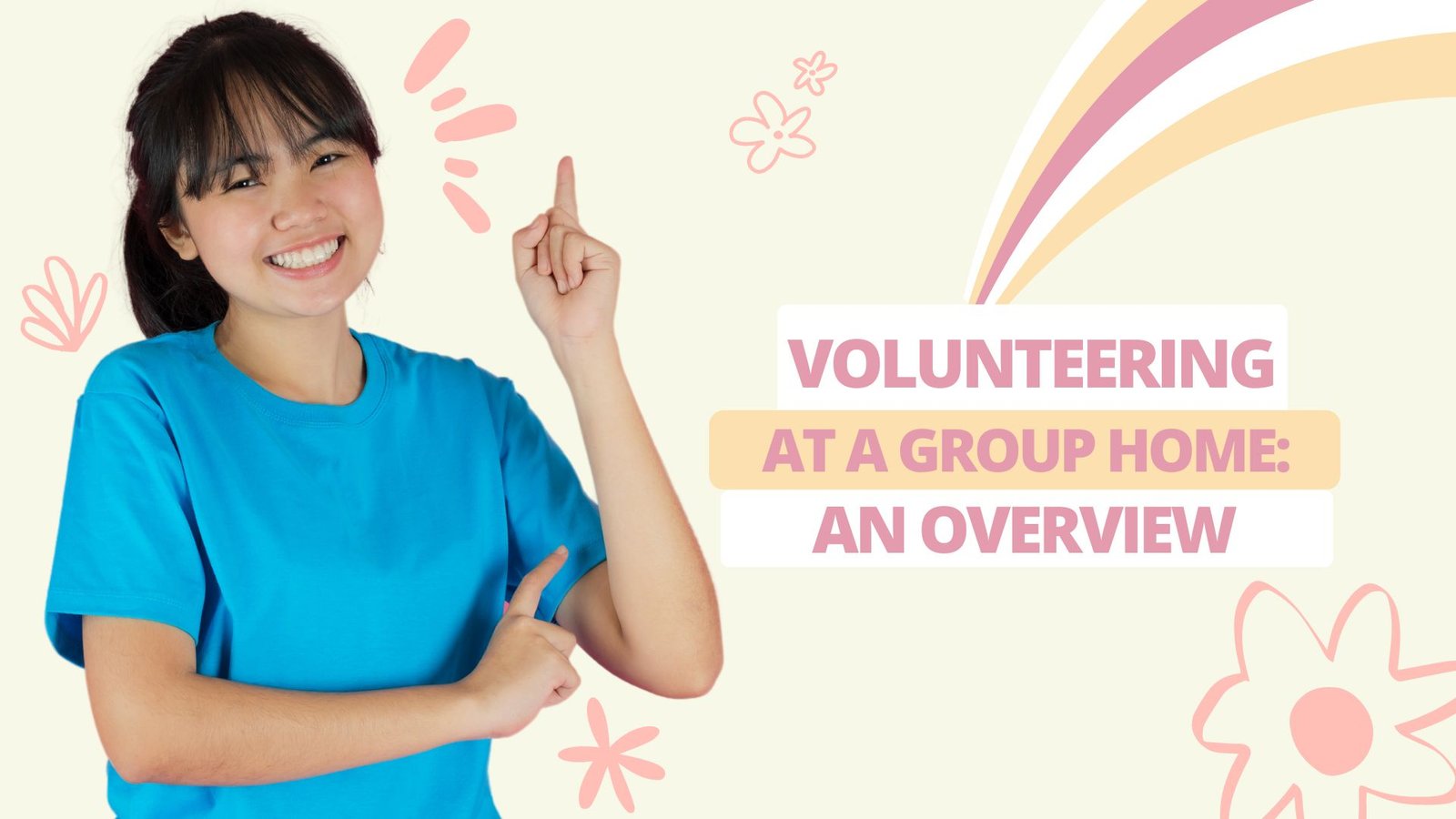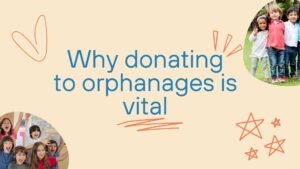1. Providing Positive Role Models
Volunteering at a group home is essential for providing positive role models for children. I engage with young people in transformative ways that promote personal growth, empowerment, and emotional support, ultimately influencing their social development and future life decisions.
Through mentoring relationships, I aim to be a key figure that contributes to the psychological well-being of children and the building of their character, helping them face life’s challenges with resilience and confidence.
Effective role models, including myself, often possess strong communication skills, empathy, patience, and the ability to inspire trust and respect. I strive to connect with the children on a personal level, encouraging them to develop essential social skills and self-esteem by demonstrating positive behaviors and making sound life decisions.
The consistent guidance I provide can significantly shape the children’s perspectives, helping them imagine a brighter future. Over time, these relationships foster independence and a sense of belonging, leading to healthier relationships and better outcomes in various aspects of their lives.
2. Helping Build Self-Esteem and Confidence
Volunteering at a group home is essential for supporting children in building their self-esteem and confidence. As caring adults provide constant emotional support and encouragement, young people can experience personal growth and develop a positive self-image.
By participating in activities such as art therapy, sports, and mentoring programs, I can help create an environment that celebrates each child’s unique skills and achievements. For example, organizing a talent show provides children with a platform to showcase their skills, fostering a sense of accomplishment that significantly boosts their self-esteem.
Additionally, one-on-one tutoring allows me to help children overcome academic challenges, instilling a sense of competence as they grasp new concepts. There are numerous success stories, such as a young girl who, with the support of a dedicated volunteer, gained the confidence to perform in front of her peers.
She transformed from a shy individual into a vibrant participant in group activities, highlighting the profound impact that volunteers’ contributions can have.
3. Offering Emotional Support and Stability
One of the key benefits I have observed in volunteering at a group home is the provision of emotional support and stability, which is essential for fostering children’s psychological well-being and cultivating resilience in the face of life’s challenges.
This fundamental aspect of development can significantly shape a child’s ability to cope with stress and adversity as they grow. As a volunteer, I recognize the vital role I play in creating an environment where emotional security and trust are prioritized, allowing children to express themselves freely and build meaningful connections. These relationships not only help validate their feelings but also serve as a model for healthy interactions.
By maintaining constant support, I contribute to establishing a solid foundation that promotes mental health and equips children with the tools necessary to navigate future challenges. Ultimately, this caring environment becomes a cornerstone of resilience, instilling confidence and fostering a sense of belonging in young minds.
4. Creating a Sense of Belonging and Community
Volunteering at group homes allows me to contribute to a sense of belonging and community among the children. As they interact with caring adults and form peer relationships, I observe how these interactions enhance their emotional intelligence and social skills.
Through this connection, children learn vital life skills such as empathy, teamwork, and communication. Being part of inclusive environments exposes them to diverse experiences that broaden their perspectives of the world, teaching them to value differences and appreciate different viewpoints.
As a volunteer, I play a crucial role in this process by providing mentorship and support, serving as a positive role model who fosters collaboration and acceptance. This interaction not only enriches the children’s lives but also instills in them a sense of responsibility and pride in giving back to the community.
Ultimately, this fosters well-rounded individuals who are better equipped to face future challenges.
5. Teaching Valuable Life Skills
Volunteering at a group home provides children with vital life skills, including teamwork, communication, and creativity, that enable them to navigate various life challenges effectively and promote their overall personal development.
Through hands-on experiences, I observe these young people learning to collaborate with peers from diverse backgrounds, fostering empathy and understanding in the process.
Participating in activities such as organizing community events or helping with daily tasks requires them to articulate their thoughts clearly and listen actively to others, reinforcing their ability to communicate effectively.
The creative problem-solving skills they develop during these experiences empower them to think quickly and adapt to unexpected situations.
These skills not only enhance their educational trajectories but also enrich their social interactions, laying a solid foundation for future relationships and collaborations in all aspects of life.
6. Exposing Children to New Experiences and Opportunities
Volunteering at a group home has provided me with the opportunity to expose children to new experiences and opportunities, significantly enriching their lives by promoting cultural awareness and diversity, while also serving as a platform for transformative personal growth.
By engaging in activities such as organizing community events, tutoring peers in academic subjects, or participating in arts and crafts with residents, I have witnessed firsthand how children gain valuable insights into different lifestyles and backgrounds.
These activities not only foster empathy and compassion but also help them develop essential social skills, allowing them to maintain effective communication and collaboration.
Programs like intergenerational storytelling or peer mentoring serve as powerful platforms where young volunteers can learn the importance of patience and understanding through diverse interactions.
This unique exposure shapes their perspectives, broadening their worldview and fostering a sense of responsibility towards their own communities.
7. Fostering Empathy and Compassion
Volunteering at a group home has allowed me to foster empathy and compassion in children as they interact with individuals from diverse backgrounds. This experience enriches their emotional intelligence and nurtures their ability to understand and support others.
Through these interactions, young volunteers witness the challenges others face, which encourages them to step outside their own perspectives and appreciate a broader range of human emotions.
By forming connections with people from different backgrounds, they learn invaluable lessons about resilience, kindness, and the importance of lending a helping hand. These interactions not only shape their character but also enhance their social skills, enabling them to form stronger and more meaningful relationships with their peers and families.
Ultimately, participating in volunteer work cultivates a sense of community and shared responsibility that benefits everyone involved.
8. Encouraging Personal Growth and Development
Volunteering at a group home has been shown to significantly encourage personal growth and development among children, as they receive mentorship and emotional support that empowers them to overcome life’s challenges and build resilience.
Through meaningful interactions with compassionate volunteers, these young people often experience greater emotional intelligence, which enhances their ability to navigate complex feelings and form deeper connections with others.
In this supportive environment, social skills flourish as collaboration and teamwork play a vital role.
I recall a touching story of a fellow volunteer who witnessed a shy child gradually open up and gain confidence through group activities, ultimately leading to lasting friendships.
Such testimonies illustrate how volunteering can act as a catalyst for psychological development, encouraging children to shift from a survival mode to a healthier, more engaged mindset focused on personal achievements.
9. Helping Break the Cycle of Neglect and Abuse
Volunteering at a group home is essential for breaking the cycle of neglect and abuse. I recognize that, as a volunteer, I provide a critical support system that empowers children and transforms their life trajectories.
By establishing consistent relationships, I create a sense of stability that many children desperately need. These interactions form the foundation of empowerment programs that equip young people with essential life skills and emotional support.
Through community outreach initiatives, I can raise awareness about the challenges faced by these vulnerable populations, fostering a culture of compassion and understanding. My involvement not only contributes to the immediate care of these children but also nurtures a broader community commitment to building safe and welcoming environments that prevent future instances of neglect and promote healthy, positive development.
10. Creating Lasting Bonds and Memories
Volunteering at a group home allows me to create lasting bonds and memories with the children, fostering trust and friendship that positively impacts their emotional and psychological well-being.
These connections provide children with a sense of stability and belonging, which are essential components of their overall development. For example, when I participate in activities such as art workshops or outdoor adventures, I not only share enjoyable experiences with the children but also help cultivate a caring environment where they feel valued and heard.
These interactions often lead to moments of celebration, whether I am celebrating a child’s achievement on a school project or simply offering a sympathetic ear during tough times.
The shared experiences significantly influence my life as well, as I gain valuable insights into empathy and resilience, ultimately transforming both the children and myself in profound ways.










0 Comments